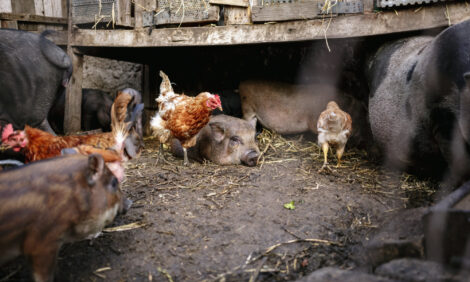



Multidrug-Resistant Bacteria Found in Chickens at Indian Markets
INDIA - Isolates of a common poultry pathogen collected from animals in Indian bird markets were mostly resistant to multiple classes of antibiotics, new research has shown.In the study, the investigators sequenced the genomes of 11 isolates of the pathogen, H. pullorum, from broiler and free range chickens from markets in Hyderabad, India. Each contained five or six well characterised antimicrobial resistance genes, against antibiotics like fluoroquinolones, cephalosporins, and sulfonamides among others.
Coauthor Niyaz Ahmed, PhD, Professor of Biotechnology & Bioinformatics, University of Hyderabad, India, said that H. pullorum could potentially be pathogenic in poultry and in humans, and explained that cases have been reported of human enteric disease caused by this bacterium. He also said that it carries a toxin that can interfere with the cell cycle, and cause DNA damage that can lead to cancer.
H. pullorum could become a public health concern, said Ahmed, because of the cancer-causing potential, and because "in countries like India, H. pullorum from poultry could be multi-resistant already because of the prevailing animal husbandry practices."
The lack of research on the prevalence of H. pullorum in India provided the impetus for the study, said Ahmed. "We targeted wet market poultry outlets for our sampling, keeping in mind that poultry in India are often fed with antibiotics to promote weight gain. These practices most likely boost spread of drug-resistant pathogens among animals and humans, posing a significant public health risk."
"Given the prevalence of H. pullorum in Indian chicken, as described in the study, the half billion Indians who eat chicken, and the fact that chicken consumption is growing at a huge 12 percent per year, the potential for spreading multi-drug resistance is "alarming," the researchers wrote.
The research is published November 4 in Applied and Environmental Microbiology, a journal of the American Society for Microbiology.








